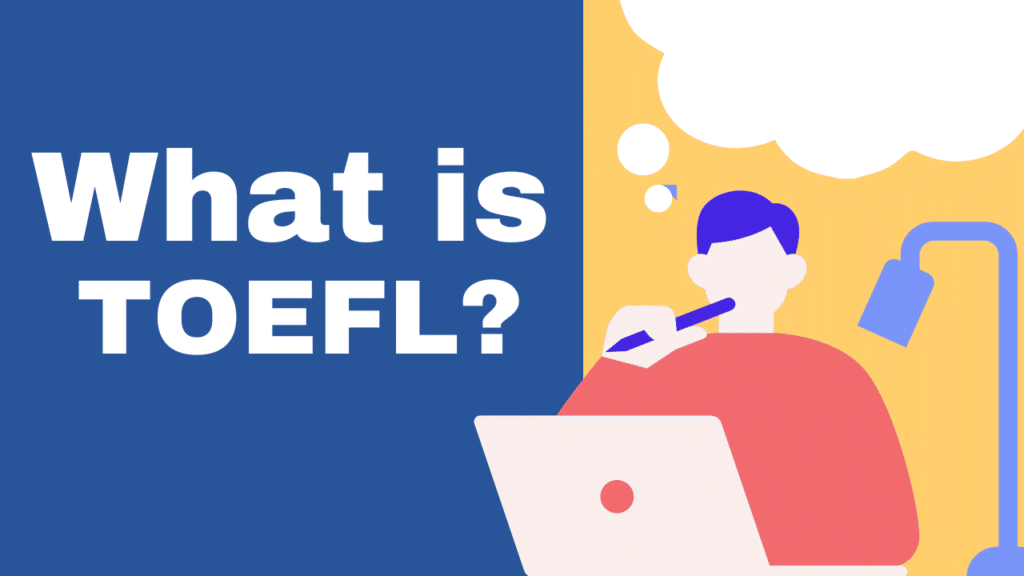কোন দেশে কত আইইএলটিএস স্কোর লাগবে? ২০২5-এ উচ্চশিক্ষা, কাজ ও PR-এর সম্পূর্ণ গাইড!”
বিদেশের বিশ্ববিদ্যালয়ে পড়ার স্বপ্ন, উচ্চবেতনের চাকরি, নাকি পরিবারের সাথে স্থায়ী বসবাস—এই তিনটির মধ্যে কোন লক্ষ্যটি আপনাকে টানে? বাংলাদেশ পরিসংখ্যান ব্যুরো একটি রিপোর্ট অনুযায়ী জানা যায় যে ,বাংলাদেশি তরুণদের ৭২%-ই এখন উচ্চশিক্ষা বা ক্যারিয়ারের জন্য বিদেশমুখী , কিন্তু স্বপ্নের দেশে পৌঁছানোর পথে IELTS স্কোর যেন এক অদৃশ্য বাধা! আপনি কি ভাবছেন, “আমার স্বপ্নের দেশে কত স্কোর লাগবে?”এই আর্টিকেলে আমরা আলোচনা করবো বাংলাদেশি শিক্ষার্থী ও চাকরিজীবীদের কাছে সবচেয়ে জনপ্রিয় দেশগুলোর IELTS স্কোর চাহিদা নিয়ে, যেখানে তারা উচ্চশিক্ষা, ক্যারিয়ার গড়া বা স্থায়ী বসবাসের স্বপ্ন দেখে।

আইইএলটিএস স্কোর কেন গুরুত্বপূর্ণ?
আইইএলটিএস (IELTS) স্কোর শুধুমাত্র একটি ভাষা দক্ষতার সার্টিফিকেট নয়, এটি আপনার বিদেশে পড়াশোনা, কাজ, বা স্থায়ী বসবাসের স্বপ্নকে বাস্তবায়নের চাবিকাঠি। যেমন:
- বিদেশে বিশ্ববিদ্যালয়ে ভর্তির আবশ্যক
- স্টুডেন্ট ভিসা প্রাপ্তির শর্ত
- পেশাগত স্বীকৃতি ও ক্যারিয়ার
- স্থায়ী বসবাস (PR) এর পথ সুগম করে
- স্কলারশিপ ও ফান্ডিং সুযোগ
উচ্চ শিক্ষার জন্য বিভিন্ন দেশের আইএলটিএস স্কোর
আইইএলটিএস (IELTS) স্কোর বিশ্বজুড়ে ইংরেজি ভাষার দক্ষতা যাচাইয়ের সবচেয়ে জনপ্রিয় মানদণ্ড। তবে দেশ, বিশ্ববিদ্যালয়, এবং বিষয়ভেদে এই স্কোরের চাহিদা ভিন্ন হতে পারে!
- অনার্স-মাস্টার্সে খরচ ও কাজের সুযোগ IELTS স্কোর
বাংলাদেশি শিক্ষার্থীদের জন্য জনপ্রিয় ২০টি দেশ এবং সেগুলোতে অনার্স ও মাস্টার্সে প্রয়োজনীয় IELTS স্কোর দেওয়া হলো।
| দেশ | অনার্সে IELTS | মাস্টার্সে IELTS | অন্যান্য তথ্য (খরচ, কাজের সুযোগ) |
| কানাডা | ৬.০ (ব্যান্ড ৫.৫+) | ৬.৫ (ব্যান্ড ৬.০+) | পোস্ট-স্টাডি ওয়ার্ক পারমিট ৩ বছর খরচ: ২০-৩০ লাখ টাকা টিপস: SDS প্রোগ্রামে আবেদন করুন (দ্রুত ভিসা) |
| যুক্তরাষ্ট্র | ৬.০-৬.৫ | ৬.৫-৭.০ | OPT কাজের সুযোগ ১-৩ বছরখরচ: ৪০-৬০ লাখ টাকানোট: TOEFL-ও গ্রহণযোগ্য, কিন্তু IELTS সহজ! |
| যুক্তরাজ্য | ৬.০ (ব্যান্ড ৫.৫+) | ৬.৫ (ব্যান্ড ৬.০+) | ২ বছর পোস্ট-স্টাডি ভিসাখরচ: ২৫-৪০ লাখ টাকাটিপস: Russell Group ইউনিভার্সিটিতে অগ্রাধিকার দিন |
| অস্ট্রেলিয়া | ৬.০-৬.৫ | ৬.৫-৭.০ | পার্ট-টাইম কাজ সাপ্তাহিক ২৪ ঘণ্টাখরচ: ২৫-৩৫ লাখ টাকাটিপস: Regional Area-তে খরচ কম |
| জার্মানি | ৬.০-৬.৫ | ৬.৫-৭.০ | টিউশন ফি প্রায় ফ্রি!খরচ: ১০-১৫ লাখ টাকা (লিভিং)নোট: APS Certificate আবশ্যক |
| মালয়েশিয়া | ৫.৫-৬.০ | ৬.০-৬.৫ | কম খরচে ইংরেজি মাধ্যমখরচ: ১০-১৮ লাখ টাকা টিপস: টুইনিং প্রোগ্রামে ইউরোপের ডিগ্রি |
| ভারত | IELTS লাগে না! | IELTS লাগে না! | NEET/JEE পরীক্ষায় ফোকাস করুনখরচ: ৫-১২ লাখ টাকানোট: মেডিকেলের জন্য NEET আবশ্যক |
| জাপান | ৫.৫-৬.০ | ৬.০-৬.৫ | MEXT স্কলারশিপে আবেদন করুনখরচ: ১৫-২০ লাখ টাকাটিপস: জাপানি ভাষা শিখুন (প্লাস পয়েন্ট) |
| নিউজিল্যান্ড | ৬.০-৬.৫ | ৬.৫-৭.০ | গ্রাজুয়েশনের পর ৩ বছর কাজখরচ: ২০-৩০ লাখ টাকানোট: Agriculture স্টাডিতে চাহিদা বেশি |
| আয়ারল্যান্ড | ৬.০-৬.৫ | ৬.৫-৭.০ | টেক হাব (Google, Microsoft)খরচ: ২০-২৫ লাখ টাকাটিপস: ডাবলিনে কাজের সুযোগ বেশি |
| রাশিয়া | ৫.৫-৬.০ | ৬.০-৬.৫ | মেডিকেলে ডাইরেক্ট এডমিশনখরচ: ৮-১৫ লাখ টাকানোট: রাশিয়ান ভাষা শিখতে হবে |
| চীন | ৫.৫-৬.০ | ৬.০-৬.৫ | MBBS-এ বাংলাদেশিদের পছন্দ খরচ: ১০-২০ লাখ টাকাটিপস: CSC স্কলারশিপে আবেদন করুন |
| তুরস্ক | ৫.০-৫.৫ | ৫.৫-৬.০ | ইসলামিক কালচার ও কম খরচখরচ: ৮-১২ লাখ টাকানোট: SAT/ACT জমা দিতে হয় |
| পোল্যান্ড | ৫.৫-৬.০ | ৬.০-৬.৫ | ইইউ দেশ, সস্তায় ইঞ্জিনিয়ারিং খরচ: ১০-১৫ লাখ টাকা টিপস: ওয়ার্সতে ইংরেজি প্রোগ্রাম |
| দক্ষিণ কোরিয়া | ৫.৫-৬.০ | ৬.০-৬.৫ | গ্লোবাল কোটা স্কলারশিপখরচ: ১৫-২৫ লাখ টাকানোট: K-Pop কালচার জানুন! |
| ইতালি | ৬.০-৬.৫ | ৬.৫-৭.০ | আর্ট, ডিজাইনে বিশ্বসেরাখরচ: ১২-১৮ লাখ টাকাটিপস: ইতালিয়ান ভাষা বোনাস |
| নেদারল্যান্ডস | ৬.০-৬.৫ | ৬.৫-৭.০ | ইংরেজি প্রোগ্রাম, ইনোভেশন হাবখরচ: ১৫-২০ লাখ টাকানোট: টিউশন ফি মাঝারি |
| নরওয়ে | ৬.০-৬.৫ | ৬.৫-৭.০ | পাবলিক ইউনিভার্সিটি ফ্রি!খরচ: ১২-১৮ লাখ টাকা (লিভিং)টিপস: Norwegian ভাষা শিখুন |
| সাইপ্রাস | ৫.০-৫.৫ | ৫.৫-৬.০ | ইইউ-তে সস্তায় পড়াশোনাখরচ: ৭-১০ লাখ টাকানোট: পার্ট-টাইম কাজের অনুমতি |
| UAE | ৫.০-৫.৫ | ৫.৫-৬.০ | ট্যাক্স-ফ্রি ইনকামখরচ: ২৫-৪০ লাখ টাকানোট: Dubai-তে চাকরির সুযোগ |
2.ইঞ্জিনিয়ারিং, মেডিকেল (মেডিসিন), এবং গবেষণা (PhD/রিসার্চ) ক্ষেত্রে ১০টি দেশের IELTS স্কোরের
| দেশ | ইঞ্জিনিয়ারিং | মেডিকেল | গবেষণা/PhD |
| যুক্তরাজ্য | ৬.০ – ৬.৫ | ৭.০ – ৭.৫ | ৭.০ – ৭.৫ |
| যুক্তরাষ্ট্র | ৬.৫ – ৭.০ | ৭.০ – ৭.৫ | ৭.০ – ৮.০ |
| কানাডা | ৬.৫ (প্রত্যেক ব্যান্ডে ৬.০) | ৭.০ (স্পিকিংয়ে ৭.৫) | ৭.০ – ৭.৫ |
| অস্ট্রেলিয়া | ৬.৫ | ৭.০ – ৭.৫ | ৭.০ – ৭.৫ |
| জার্মানি | ৬.০ – ৬.৫ | ৭.০+ | ৭.০+ |
| নিউজিল্যান্ড | ৬.৫ | ৭.০ | ৭.০ |
| সুইডেন | ৬.৫ | ৬.৫ – ৭.০ | ৭.০ |
| নেদারল্যান্ডস | ৬.৫ | ৭.০ | ৭.০ – ৭.৫ |
| জাপান | ৬.০ – ৬.৫ | ৬.৫ – ৭.০ | ৭.০ |
| সিঙ্গাপুর | ৬.৫ | ৭.০ | ৭.০ – ৭.৫ |
কাজের ভিসা ও PR পেতে কত IELTS স্কোর চাই?
বিদেশে কাজ ও স্থায়ী বসবাস: বাংলাদেশিদের জন্য ১০টি দেশের IELTS স্কোর রিকোয়ারমেন্ট :
| দেশ | কাজের ভিসায় IELTS | প্রাইমারি রেসিডেন্সি (PR) IELTS | গুরুত্বপূর্ণ নোটস |
| কানাডা | ৬.০ (CLB ৭) | ৬.০-৭.৫ (CLB ৭-৯) | Express Entry-এ বেশি স্কোরে বেশি পয়েন্টProvincial Nominee Program (PNP)-এ কম স্কোরেও সুযোগ |
| অস্ট্রেলিয়া | ৬.০ (প্রতি ব্যান্ডে ৫.০+) | ৬.০-৮.০ | –Skilled Visa (subclass 189/190)-এ ৬.০ স্কোর মিনিমাম- ৮.০ স্কোরে এক্সট্রা পয়েন্ট |
| জার্মানি | ৫.০-৬.০ (জার্মান ভাষা প্রাধান্য) | B1/B2 জার্মান + IELTS ৬.০-৬.৫ | -Blue Card-এর জন্য ইংরেজি স্কোর শিথিল- জার্মান ভাষা শিখলে PR ত্বরান্বিত |
| যুক্তরাজ্য | ৪.০-৫.৫ (স্পিকিং+লিসেনিং) | ৬.৫ (UKVI IELTS) | -Skilled Worker Visa-এ ন্যূনতম ৪.০-PR-এর জন্য Life in the UK টেস্টও দিতে হয় |
| নিউজিল্যান্ড | ৬.৫ (প্রতি ব্যান্ডে ৬.০+) | ৬.৫+ | -Skilled Migrant Category Visa-এ স্কোর জরুরি- ৪০ বছরের কম বয়সে অগ্রাধিকার |
| সুইডেন | IELTS লাগে না (সুইডিশ ভাষা চাই) | B1/B2 সুইডিশ + IELTS ৬.৫ | -ইংরেজিভিত্তিক চাকরিতে IELTS লাগে না-PR-এর জন্য ৪ বছর বসবাস আবশ্যক |
| UAE | ৫.০-৫.৫ (পেশাভেদে) | IELTS লাগে না | -Dubai/Abu Dhabi-তে ইংরেজিতে কাজের সুযোগ-PR পেতে Golden Visa (বিনিয়োগ/ট্যালেন্ট) |
| সিঙ্গাপুর | ৬.০-৬.৫ (এমপ্লয়ার রিকোয়ারমেন্ট) | ৬.৫+ | -Employment Pass-এ IELTS না-ও চাইতে পারে- PR-এ স্থানীয় ইন্টিগ্রেশন জরুরি |
| নরওয়ে | IELTS লাগে না (নরওয়েজিয়ান ভাষা) | B2 নরওয়েজিয়ান + IELTS ৬.০ | -অয়েল অ্যান্ড গ্যাস সেক্টরে ইংরেজিতে চাকরি-PR-এর জন্য ৩ বছর কাজ+ভাষা দক্ষতা |
| মালয়েশিয়া | ৫.০-৫.৫ (এমপ্লয়ার ডিসক্রেশনে) | ৫.৫+ | -MM2H Visa-এ স্থায়ী বসবাসের সুযোগ-কম খরচে জীবনযাত্রা |
উপসংহার
আইইএলটিএস স্কোর আপনার গ্লোবাল এডুকেশন ও ক্যারিয়ারের স্বপ্নকে বাস্তবায়নের প্রথম সিঁড়ি। একটি ভাষা পরীক্ষা নয়, বরং আপনার অধ্যবসায়, প্রস্তুতি ও আন্তর্জাতিক যোগাযোগ দক্ষতার প্রতিফলন। প্রতিটি দেশ, বিশ্ববিদ্যালয় ও বিষয়ের চাহিদা ভিন্ন—সঠিক তথ্য গবেষণা করে টার্গেটেড প্রস্তুতি নিলেই সাফল্য নিশ্চিত।
কোন দেশে কত আইইএলটিএস স্কোর লাগবে? ২০২5-এ উচ্চশিক্ষা, কাজ ও PR-এর সম্পূর্ণ গাইড!” Read More »













